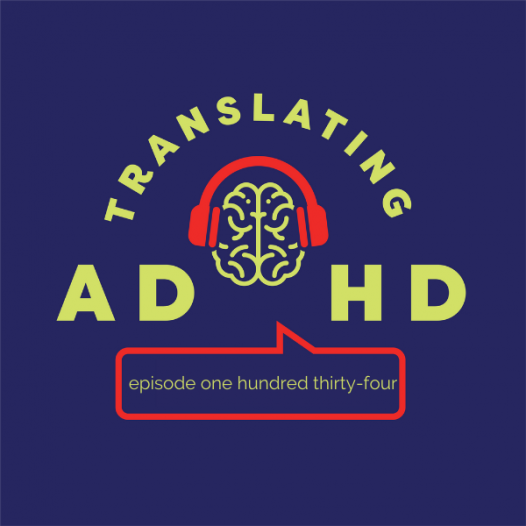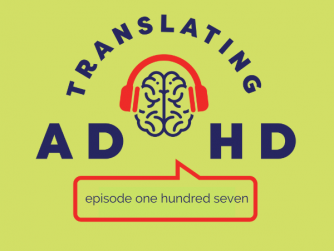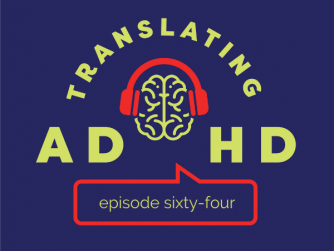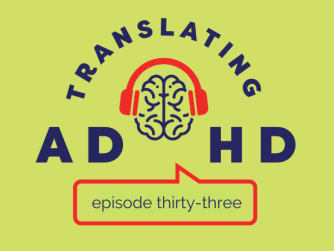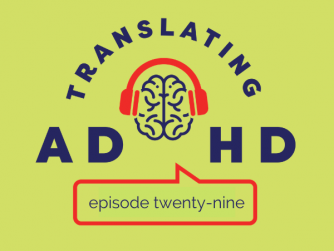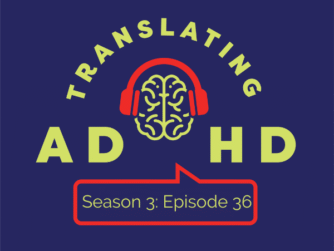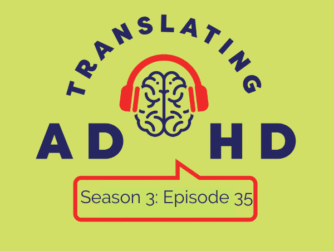The hosts continue exploring expectations, shifting to personal relationships this week. Cam takes the lead sharing dynamics that he sees from his Melissa Orlov coaching classes. The same habitual responses are in play in personal relationships as they were in last week’s episode on expectation and work. Add the dynamics of emotional investment and less defined roles, and the result is more contentious engagements with more emotional flooding by all parties.
Cam and Shelly believe that many of the conflicts that come to a head in any romantic relationship often start with ill-defined expectations – that the partners at some point divert on their own picture of success. Shelly and Cam share multiple client examples to illustrate this point. They point to the opportunity to see expectation as a conversation starter, for partners to develop a shared language around feelings and expectations. It’s not about compliance or getting on the same page as much as appreciating the other’s perspective. Often ADHD is viewed as a convenient nemesis of a healthy relationship. ADHD is in play, but it never acts alone. All parties have their own work to do, and once everyone agrees to this principle then real change can occur. Cam and Shelly leave listeners with some steps to address expectations proactively.
Episode links + resources:
For more of the Translating ADHD podcast:
- Episode Transcripts: visit TranslatingADHD.com and click on the episode
- Follow us on Twitter: @TranslatingADHD
- Visit the Website: TranslatingADHD.com
Episode Transcript:
Shelly: Hi, I’m Shelly.
Cam: And I’m Cam.
Shelly: And this is Translating ADHD.
Before we start, on the group coaching front our current offering is a course that is just with Cam. That class is Equanimity and it begins Tuesday, July 12th at 9:00 pm Eastern. For pricing and more information on this course, visit the website translatingadhd.com and click on the group coaching tab. So Cam, what are we talking about on this episode?
Cam: This week, we’re still looking at expectations. Last week, we talked about expectations at work and the week before we were talking about habitual responses to expectations. So we’re digging in here and this week we’re looking at personal relationships, sorry uh, and oh boy, Shelly. It’s a great area to look at looking at how expectations come into play how, when they are not tended to things can really go awry quickly and what to do about it. And so I’ve seen a lot here. I’ve been doing a group coaching class for graduates of Melissa or lofts couples seminar.
So Melissa wrote the book, the ADHD marriage connection, and she offers an excellent seminar on basically the impact of ADHD in marriage. And so I offer a coaching class to graduates of that, the ADHD partner, because what happens is people get this great information and they go forward and they’re like, yeah, let’s go ahead and engage in some of these changes.
And remember one person at least has. And what does that mean? It means that they still have those three barriers of awareness, action and learning. And so then there can be more frustration because, oh, we finally figured out what’s going on. And if they loved me, they would treat their ADHD or take it seriously. So it’s a really fascinating area to look at. And we’re gonna dig in here. So today. Yeah. I, I can keep going. I know I got it. Yeah. Yeah. That’s right. So I, that, that definition. Of expectation. I, I just keep coming back to that where we shared a couple weeks ago and that, that definition of that an expectation is a belief. That’s something will happen in the future in a certain way.
And I think this happens in every relationship you get into a relationship and you start to build this connection. Around common values and interests, but to be human is to have expectation, to have a belief that this relationship will evolve and grow and change and move forward. you know, As well as I do that, That definition, right there can be really problematic for someone with ADHD, right? That we, with around a belief, it’s the meaning making element of beliefs can really hook us and take us for a ride. Identifying something that will happen in the future is like that’s ADHD in a Nu.
And if you think about some of the things that come into play with relationships, especially established ones, there’s that honeymoon phase that happens in the, the first couple years. But after that, you know, it’s often about shoveling kids and mending fences. And so you have a partners like there’s that fence that needs mending, and for the partner with ADHD, the mending of the fence is low interest and low urgency. So it’s a classic thing where it’s sort of like just slips and slips. And if you have undiagnosed ADD, then you have this insertion of inference and assumption. We’re moving away from fact and we’re going into, oh well, he hasn’t done the fence yet. That must mean so. We create meaning or belief around that flip side on the other side is she keeps S nagging me about the damn fence. Why does she have to do that? And then we do our own inference there, too. What happens is in relationships where expectations are not addressed proactively. That partners will actually take them and start to weaponize them. We’ll use them in those worst moments. When you go head to head in that moment, when you flood and you go to your corners and it’s like a, 15 round punching, right?
what am I trying to, Hey, Shelly.
Shelly: A 15 round punching
Cam: punching thing. Yeah. Uh,
Shelly: listen. I think our listeners can infer what
Cam: yeah, so I just wanna say I’ve got the plague and I’m full of experimental drugs, so I’m doing my best people. Okay. I’m just gonna, I’m just gonna put that out there to the world. So needless to say. What happens is when we are at our worst. And we get in that defensive crouch, we actually take our expectations and we kind of fling ’em at our partners when they’re not in a position to receive them.
Well. So we talked last week and the week before about these habitual responses, up the flag pole the bristle. Remember bristle bristle, the bristling around the discord community.
Shelly: How can I forget the bristle cam? I bristled at you a little again this morning.
Cam: yeah. I was like, oh, and then the shame response. Oh I’m completely responsible for all of this, right. I need to atone for my sins. So all kinds of things happen in a relationship. And then when you get this diagnosis again, if expectations are not looked at as this point of engagement, that’s the thing that Shelly and I have been talking about for the last couple weeks is they’re there they’re always at work because to be human is to have expectation, but they kind of can run in the background and then they can feed into and really create the drama and the misinformation.
And then we start pulling them out of our quiver and flinging them at each other. Right? Like, If you cared about me, you’d address your ADHD, Or if you weren’t such a need freak, you might be actually a pleasant person. Those examples are, are not from any experience, and I just go back to it’s. I had the expectation when I got diagnosed with ADHD, that I was gonna take meds and it would all be cool. Like I go back to some form of normal, right? So everyone’s kind of on this edge of really not understanding what they’re up against with this diagnosis.
The best thing you can do though, is to start with learning about it. Number one, To learn about it. Number two, here’s a false belief that if you address the ADHD, you address all of your marital or relational challenges, it is never the case. It takes two to tango. And so, so often what happens is, is like, oh, we found it.
We found it. It’s the ADHD. If we address the ADHD, then all of our problems go. That is never ever the case. ADHD is in play, but everyone has their role. we talked about this Shelly with mine, yours, and ours to distinguish what is my work? What is your work? What is our work? And everybody, everyone has their own work.
That’s another thing is can an expectation can kind of well up out of this, of like, oh, well I’m fine. You are the broken one and you need to go fix your a D D and then meet me. Right. You know, Come join me when you fix your a D D. Well, that’s one of the worst things you can do for your partner, when they’re feeling isolation and confused, and you’re not offering support to them.
Shelly: On toxic relationships, there is this internalizing of the challenges. know that blame Sping by the ADHD partner, which is what that client was doing. In that case, she was blame sponge and also not trusting her own lived experience so that when her partner would put the blame at her feet, She didn’t know how to distinguish whether or not that was her blame to pick up and carry.
And so she did, and either way is really toxic, right? Because it’s this hoovering of all of the blame in the relationship and. That is whether or not our partners are contributing to that. Now, if our partners are contributing on top of that, if we’ve developed this dynamic where our partners see our ADHD as the enemy of a healthy relationship, That just doubles down.
That’s when we can, you said earlier that mending, the fence is low urgency, low interest, but this is the point where I see my clients feel like they’re backed into a corner and it’s painfully high urgency. I have to fix my ADHD now, or my life’s gonna fall apart. My relationship’s gonna fall apart. I’m gonna lose my job.
Cam: Yeah. And your relationship might fall apart, right? It is. It is in that state that if people have been together for 15, 20 years and it’s like, they’ve really gotten to a place of I’ve had enough. the other thing we always say is that don’t try to do this alone. I’ve gotten connected with some Gottman couples therapists that the Gottman approach is really helpful in these scenarios where. There’s any kind of contempt or resentment, Those cold emotions that are in play because of these dynamics that have been there for so long. And then these beliefs become so entrenched and it’s like, again, I’ve already made up my mind of who you are and you’re not committed and I’m done, but then the marriage or the relationship becomes just.
Right. They call a gray divorce in a way. So when you have someone so close to you having dynamics that are not working just think about it. People like the distraction and the emotional regulation component, it exacerbates all the situations and it makes it really, really tough.
Shelly: So Cam, I kind of wanna come back to the topic at hand of expectations. And I wanna talk briefly about the fact that sometimes the problem starts when the expectation looks different on either side of the equation where there’s conflict created, where with some translation between you and your partner, there, maybe didn’t need to be conflict to begin with. and I can give you an example from my own household last night. So my partner does not currently live with me, but he does spend the weekends here and he usually goes home on Sunday evenings. And this week we had greet or so I thought that he would do the dishes before he left. And that included some of the dishes from our camping trip. We’re still slowly working on unpacking that mess, getting everything put away, preparing for our next trip. And so it was kind of a big job.
And last night he was doing the dishes and I walked in and he said, okay, I think I’ve reached the point this is good enough. Right. I was like, no, it’s not good enough. They’re not done. I want you to reach a completion here. Meanwhile, he was like, you talked about wanting to take the coolers downstairs and wanting to go through these other totes and wanting to do this. And so I was leaving time for those things. So do you see how we were on two completely different paths?
I wanted him to do the dishes to completion so that this week, during the week, I could continue to move this project forward. Whereas he heard the things that I needed to do next and assumed that we were going to tackle those together. And so he stopped the dishes at what he thought was a logical stopping point to make some time and space to do these other tasks. We were just on two completely different pages about what we were doing that evening, what the expectation was and what completion looked like.
Cam: So at that point right there, what was the knee-jerk or habitual response in that moment when you had the conflict. And again, before you had the breakthrough, cuz I know there’s a breakthrough there, but before that was there kind of a little bit of a habitual response on both parts like, on Phish tour, You both had your habitual response. Was there a habitual response here?
Shelly: Oh, totally in the same ones. Right. He says, okay. I think I’ve reached a stopping point, and I bristle. And he starts running it up the flag pole with well, you said you also wanted to do this and this and this and this. And so I have added that to my mental list of expectations. Right. Those are now on the flag pole for me.
So I’m leaving time and space for those things. So yeah, there was a moment there and actually, funnily enough, what broke the moment is me. You really need to listen to that podcast episode from a couple of weeks ago where I talk about you because here’s what’s happening. Right. Here’s what’s happening.
And that’s the thing is when you’re able to develop shared language with a partner around these behaviors, look, the ADHD behaviors are still gonna be there. I do this for a living and I still bristle at my partner. Sometimes I do this for a living and I. Learning how to be in a relationship with an ADHD partner, because that’s a new lived experience for me, but just like listening to this show and cultivating language for your own awareness can help you better see your patterns and better name them. Cultivating shared language with a partner can do the same thing. Right. We sat down and we talked about that episode and what I said, and now we have this language of you’re bristling. You’re running it up the flag pole. maybe the expectations aren’t clear. And that’s a whole shortcut where we kind of get to skip the part where we get mad at each other.
And we don’t know why, because we do know why, and we know how to work together. To fix it, Let’s step back and let’s get on the same page about expectation first and then take it from there.
Cam: Such a great example there. And it, it lays out for the listeners, the steps that we can take here, it is that you’re going along and as just to be human is to assume, We are independent thinkers. So we interpret, we assume we discuss and we go on our way. But we’re still our habitual selves. Right?
So your partner’s like, okay, and I’m gonna go over here cuz I heard this and he’s a doer. Right? He’s gonna jump in that cat. He’s gonna jump in the back of the bed of the truck and like, go, go, go and set up that sheltered shade. Right. but you are looking for completion and you didn’t hear that. You didn’t appreciate or have the same picture. So again, back to that statement of an expectation is a belief that something will happen in the future in a certain way. You each had your own pictures of what that looked like, but what happens often is people go and they get in this contentious place of damnit.
Why won’t you finish the dishes? There you go. Again. And this again, that symptom response response kind of elevating and everyone adrenaline coming. And then we go all back to the we’re all in and you always blah, blah, blah. And I never.dot dot. Right. And it’s all around this thing where if you just are able to pause, disrupt, and pivot right here of like, well, wait a second. Okay. I’m noticing the bris. I was just listening to a 10% happier meditation this morning. And it was all about just noticing the emotion, whatever it was. Notice it, and just take a pause. Do I need to respond to that? Do I react here or can I let it inform what’s going on for me? And it’s a place or an opportunity to start to think about?
Do we have. Two different understandings of the expectation here. It’s likely I wonder what their expectation is. Right? So introducing curiosity, instead of taking that expectation and weaponizing it. Making all or nothing statements and declarations and emotionally flooding around it of, yeah, you don’t complete here and you don’t complete it over here too.
And X, Y, Z. And let me pull out my color chart where you don’t complete. Well, You bristle it X, Y, Z, ABC, right? It just, it can go crazy versus whoa, easy does it here. Let’s look at expectations. Did we not establish the expectation or somewhere along the line, they just criscross and got confused. This goes back to last week with work, right?
That is their expectations all over the place. And people to be human is to take something and to create your own interpretation of an expectation. And then it gets confusing.
Shelly: think it might be helpful to throw in another example here from a client meeting last week. So this client is one who does often feel like she’s put on the back foot by her partner about what she’s not doing, where she’s not completing, where she’s not engaging because of her ADHD. and she had a really important realization in our session last week.
And that was oftentimes when she thinks the decision has been made. So we have decided that we are not going to buy a new car. The car we have is just fine. We’re gonna let it go a year and then come back to this conversation. And then all of a sudden her partner is like, Hey, I went and looked at cars today.
And so for her, she’s missing the point. I thought we made a decision and we were on the same page to let this go a year. You clearly didn’t think that. So how can we sit down? And this is what she got curious about to talk to her partner about how can we agree when we’ve made a decision? And agree on when it’s valid to reopen a decision,
because those two things are often what she ends up feeling like she’s behind on what she’s being told she’s behind on, because she’ll think a decision is made one way and then her partner is like, brings it back up. Can you do this? Can you do this research for cars? I thought we weren’t buying a car.
What the heck? And that was really important distinguishing work too, because we had to distinguish that out from the other things she’s not attending to. The primary complaint from her partner often is not attending to not completing.
But when you distinguish out the things that she’s not attending to or not completing, because they’re confusing because they’re not clear because there’s not a co-created expectation there, you know, suddenly the picture gets a lot different.
Yeah. There’s still some ADHD completing stuff. There’s still some her stuff in the relationship that needs some work, but the bulk of the picture is in the, our stuff. Is in the expectations. Aren’t clear. We’re not clear about how we make decisions. We don’t have a way of tracking and recording these things and reminding ourselves of the decisions that we’ve made.
We’re not on the same page. And that creates a lot of extra chaos and confusion. And I see that pretty often with my ADHD clients, not always where, when we start to parse out the yours mine hours. The bulk of the work is really in the hours. It’s really in the, how do we get on the same page? How do we have explicit agreements about who’s doing what, what are the expectations here?
How do we keep track of this stuff? Right. And how do we reopen the conversation? If we need to renegotiate, if we need to do something different.
Cam: That’s a great example. And I wanna counter with an example of my own, as we finish up here, I’m just thinking about a client. One of the students in this eight-week class, I just finished up my last uh, Melissa class and how they showed up and how they left. And it was just so different how they showed up. No trust.
With their partner, contentious, arguing, combative, and how they left was connected, aware. And this doesn’t always happen like this. Like it’s just it’s, it’s a timing thing right here. You’ve got these patterns that are happening for years and years and years. And this is an eight week course. It’s really about laying the foundations for, creating change. But this person did some really important work.
I think that often, you know, these listeners might be out here, but like, you know what, I’m not bud until they budge. I’m not Not moving. It’s not my problem. They need to take the first step. I wanna say. There’s a vulnerability element here. So you’ve been talking about finding words. This guy was in a place where, again, the frustrations of his partner, he was taking that as again, just an incredible shame and. Just overwhelming and just couldn’t imagine that he was causing all of this pain. And yet when he started to learn about expectations and needs and boundaries and starting to develop some language of how you feeling. Because that was her frustration. He wasn’t able to articulate how he was feeling. And so her frustration was you just shut down and her assumption was he doesn’t care when in fact he cares tremendously, but when he was able to do a little pause, disrupt pivot himself, finding that mechanism for his own stuff. Then he started to bring it to cautiously at first to his partner to share, Hey, this is what we’re doing here. And it was amazing to see this pivot of where someone so close and so contentious how that freezes up the prefrontal cortex to someone so close and listen.
With compassion and that’s all they were doing. There was not huge change. It was just this receptivity Shelly. Right. And that’s the place to move to. So if, you’re bristly, if you are feeling shame, totally responsible, if you’re dismissive I don’t know what the big deal is. We can all do a little bit to think about sort of like, am I making an assumption here?
Could it be that we’ve really mixed up our expectations? Can I take it from this positional place and move it to more of an aspirational? That’s what my wife and I did, my wife and I, again, we were, we were on the way out people on the way out, but when. Got really clear whether we’re gonna fish or cut bait.
I can’t, I can’t even do this Yes. Fish. It all sounds so weird. Fish or cut bait. Yes. Fish or cut bait. We went to the aspirational of like, what really matters, what really matters and where our values are and our values are around again, we found. We wanted to raise kids the same way. We love nature. And we love old houses and we love cool little towns and we love sailing. And those were the things that really mattered and that letting go of. How it’s done. That’s the thing. I think my spouse has done more than anything. She has a certain way of doing things and that’s how she got kind of an expectation of it would happen a certain way. I’m like, listen, my wiring is such that we can’t get focused on that. How part can we agree to disagree on how it’s gonna be. and when she was able to shift there, then I was able to shift too. And again, the rest is history. We’re coming up on 30 years of marriage.
Shelly: Wow.
Cam: Wow.
Shelly: Wow.
Cam: Yeah. And two great kids. So listeners, wherever you are with this, take a breath and start to think about expectations. Is there some misunderstanding there? Can you delineate what’s yours? Can they delineate what’s theirs? Can you come to an understanding of what’s ours? For our ADHD listeners, starting to get serious about how the ADHD comes into play, because it does for the non-ADHD partner is not to put the target on the ADHD.
Only it is a factor, but it’s not the only factor. And if you’re looking for compliance, That’s what often people are looking for is like, I need compliance. No, you don’t. You want an independent, creative, supportive, complementary partner who is gonna think different than you, and they’re gonna do different.
Shelly: Well-said, Cam. I think in the heat of things, we can all think what we want is compliance. If the other person just changed in this way or just met my expectation here. But I find in my work with my clients and in the work I’m doing in my own relationship, that when you take a step back, you’re able to connect to those bigger things that drew you to this person in the first place.
Yeah. My partner really likes to run it up the flag pole and he isn’t so great at seeing the completion that I see, and those are challenges for us. He’s also a relentless optimist, and I needed that in my life at the time that he came into my life. And that gives way more to me than our disconnects around expectation take away because we’re able to work through and navigate through those things together from the same side, right? Not on opposite sides, but on the same side, tackling the problem together with curiosity. And if anything is the moral of the episode, I think it’s that it’s not about sides, right? Let’s be on the same side and see if we can’t lick this thing together by other, by looking at it with curiosity, rather than with frustration or contention.
So listeners, you know, the drill. If you like what we’re doing here, three ways you can help us out. We’re gonna keep it short and sweet today. The first, leave a review wherever you listen. The second, don’t keep us a secret. And finally, you can financially support the show by becoming a patron. Visit the website translatingadhd.com. Click on the Patreon link in the upper right-hand corner. So until next week, I’m Shelly.
Cam: I’m Cam.
Shelly: And this was translating ADHD. Thanks for listening.

